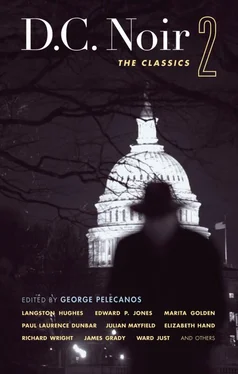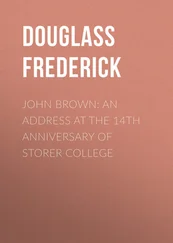“Any one may be present, but it costs a fee of five dollars for the privilege of the floor.”
Mr. Hamilton turned to the desk and made out a check. He handed it to Miss Kirkman, saying, “Cash this, and pack that convention for the administration. I look to you and the people you may have behind you to check any rash resolutions they may attempt to pass. I want you to be there every day and take notes of the speeches made, and their character and tenor. I shall have Mr. Richardson there also to help you. The record of each man’s speech will be sent to his central committee, and we shall know how to treat him in the future. You know, Miss Kirkman, it is our method to help our friends and to crush our enemies. I shall depend upon you to let me know which is which. Good-morning.”
“Good-morning, Mr. Hamilton.”
“And, oh, Miss Kirkman, just a moment. Frank,” the secretary came in, “bring me that jewel case out of the safe. Here, Miss Kirkman, Mrs. Hamilton told me if you came in to ask if you would mind running past the safety deposit vaults and putting these in for her?”
“Certainly not,” said Miss Kirkman.
This was one of the ways in which Miss Kirkman was made to remember her race. And the relation to that race, which nothing in her face showed, came out strongly in her willingness thus to serve. The confidence itself flattered her, and she was never tired of telling her acquaintances how she had put such and such a senator’s wife’s jewels away, or got a servant for a cabinet minister.
When her other duties were done she went directly to a small dingy office building and entered a room, over which was the sign, “Joseph Aldrich, Counselor and Attorney at Law.”
“How do, Joe.”
“Why, Miss Kirkman, I’m glad to see you,” said Mr. Aldrich, coming forward to meet her and setting a chair. He was a slender young man, of a complexion which among the varying shades bestowed among colored people is termed a light brown skin. A mustache and a short Vandyke beard partially covered a mouth inclined to weakness. Looking at them, an observer would have said that Miss Kirkman was the stronger man of the two.
“What brings you out this way to-day?” questioned Aldrich.
“I’ll tell you. You’ve asked me to marry you, haven’t you?”
“Yes.”
“Well, I’m going to do it.”
“Annie, you make me too happy.”
“That’s enough,” said Miss Kirkman, waving him away. “We haven’t any time for romance now. I mean business. You’re going to the convention next week.”
“Yes.”
“And you’re going to speak?”
“Of course.”
“That’s right. Let me see your speech.”
He drew a typewritten manuscript from the drawer and handed it to her. She ran her eyes over the pages, murmuring to herself. “Uh, huh, ‘wavering, weak, vaciliating adminstration, have not given us the protection our rights as citizens demanded — while our brothers were murdered in the South. Nero fiddled while Rome burned, while this modern’ — uh, huh, oh, yes, just as I thought,” and with a sudden twist Miss Kirkman tore the papers across and pitched them into the grate.
“Miss Kirkman — Annie, what do you mean?”
“I mean that if you’re going to marry me, I’m not going to let you go to the convention and kill yourself.”
“But my convictions—”
“Look here, don’t talk to me about convictions. The colored man is the under dog, and the under dog has no right to have convictions. Listen, you’re going to the convention next week and you’re going to make a speech, but it won’t be that speech. I have just come from Mr. Hamilton’s. That convention is to be watched closely. He is to have his people there and they are to take down the words of every man who talks, and these words will be sent to his central committee. The man who goes there with an imprudent tongue goes down. You’d better get to work and see if you can’t think of something good the administration has done and dwell on that.”
“Whew!”
“Well, I’m off.”
“But Annie, about the wedding?”
“Good-morning, we’ll talk about the wedding after the convention.”
The door closed on her last words, and Joseph Aldrich sat there wondering and dazed at her manner. Then he began to think about the administration. There must be some good things to say for it, and he would find them. Yes, Annie was right — and wasn’t she a hustler though?
It was on the morning of the 22d and near nine o’clock, the hour at which the convention was to be called to order. But Mr. Gray of Ohio had not yet gone in. He stood at the door of the convention hall in deep converse with another man. His companion was a young looking sort of person. His forehead was high and his eyes were keen and alert. The face was mobile and the mouth nervous. It was the face of an enthusiast, a man with deep and intense beliefs, and the boldness or, perhaps, rashness to uphold them.
“I tell you, Gray,” he was saying, “it’s an outrage, nothing less. Life, liberty, and the pursuit of happiness. Bah! It’s all twaddle. Why, we can’t even be secure in the first two, how can we hope for the last?”
“You’re right, Elkins,” said Gray, soberly, “and though I hold a position under the administration, when it comes to a consideration of the wrongs of my race, I cannot remain silent.”
“I cannot and will not. I hold nothing from them, and I owe them nothing. I am only a bookkeeper in a commercial house, where their spite cannot reach me, so you may rest assured that I shall not bite my tongue.”
“Nor shall I. We shall all be colored men here together, and talk, I hope, freely one to the other. Shall you introduce your resolution today?”
“I won’t have a chance unless things move more rapidly than I expect them to. It will have to come up under new business, I should think.”
“Hardly. Get yourself appointed on the committee on resolutions.”
“Good, but how can I?”
“I’ll see to that; I know the bishop pretty well. Ah, good-morning, Miss Kirkman. How do you do, Aldrich?” Gray pursued, turning to the newcomers, who returned his greeting, and passed into the hall.
“That’s Miss Kirkman. You’ve heard of her. She fetches and carries for Luther Hamilton and his colleagues, and has been suspected of doing some spying, also.”
“Who was that with her?”
“Oh, that’s her man Friday; otherwise Joseph Aldrich by name, a fellow she’s trying to make something of before she marries him. She’s got the pull to do it, too.”
“Why don’t you turn them down?”
“Ah, my boy, you’re young, you’re young; you show it. Don’t you know that a wind strong enough to uproot an oak only ripples the leaves of a creeper against the wall? Outside of the race that woman is really considered one of the leaders, and she trades upon the fact.”
“But why do you allow this base deception to go?”
“Because, Elkins, my child,” Gray put his hand on the other’s shoulder with mock tenderness, “because these seemingly sagacious whites among whom we live are really a very credulous people, and the first one who goes to them with a good front and says ‘Look here, I am the leader of the colored people; I am their oracle and prophet,’ they immediately exalt and say ‘That’s so.’ Now do you see why Miss Kirkman has a pull?”
“I see, but come on, let’s go in; there goes the gavel.”
The convention hall was already crowded, and the air was full of the bustle of settling down. When the time came for the payment of their fees, by those who wanted the privilege of the floor, there was a perfect rush for the secretary’s desk. Bank notes fluttered everywhere. Miss Kirkman had on a suspiciously new dress and bonnet, but she had done her work well, nevertheless. She looked up into the gallery in a corner that overlooked the stage and caught the eye of a young man who sat there notebook in hand. He smiled, and she smiled. Then she looked over at Mr. Aldrich, who was not sitting with her, and they both smiled complacently. There’s nothing like being on the inside.
Читать дальше











